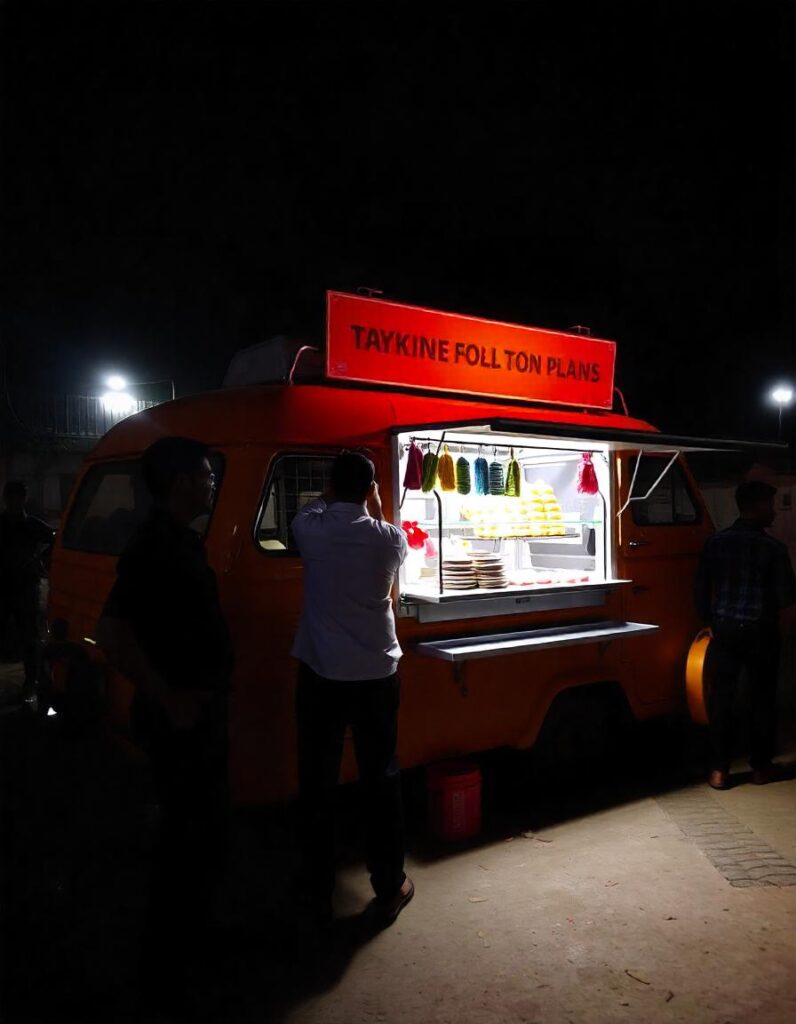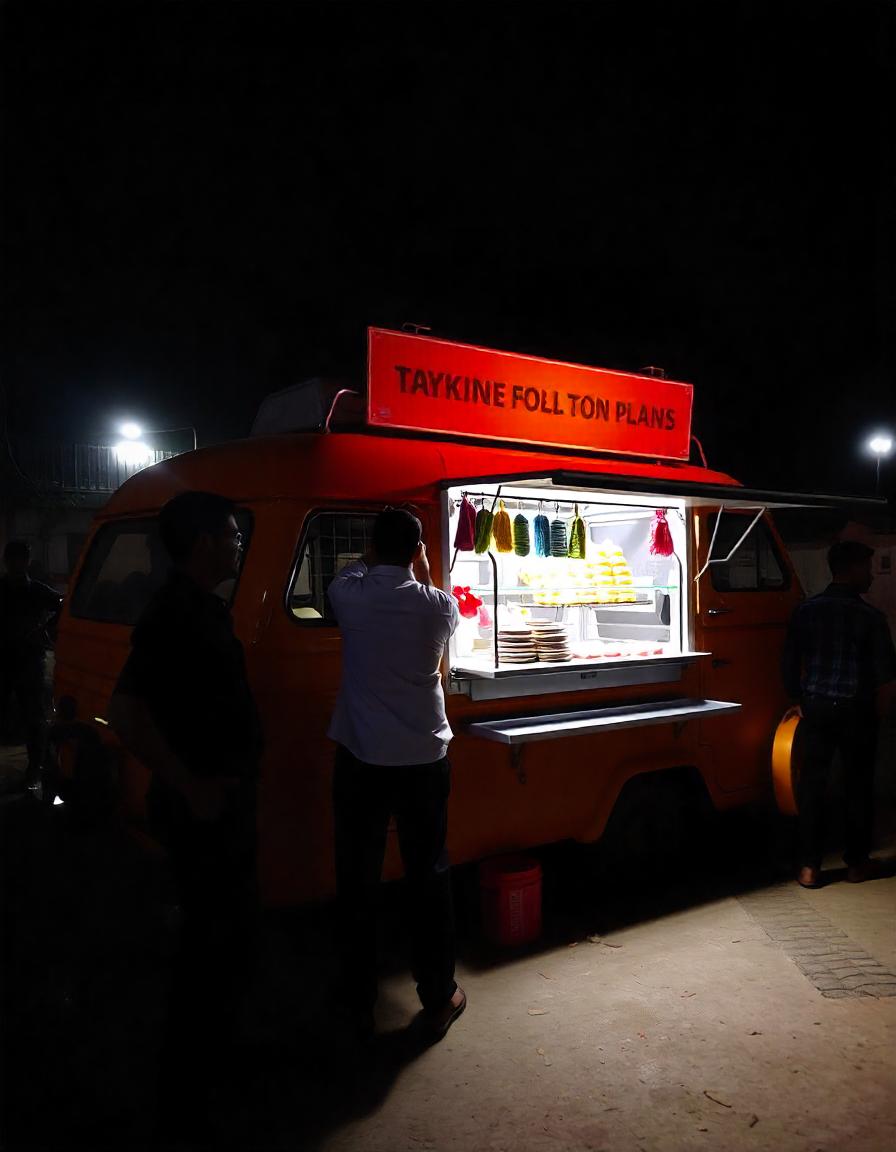How to Start a Food Truck Business in India: A Comprehensive Guide
Starting a food truck business in India has become an appealing option for aspiring entrepreneurs looking to break into the food and beverage industry. With lower startup costs compared to traditional restaurants and the ability to reach multiple locations, food trucks are an exciting opportunity for those passionate about cooking and serving delicious meals on the go. This guide will walk you through the steps to start a successful food truck business in India.
Table of Contents

1. Research and Concept Development
Before diving into the food truck business, it’s crucial to do thorough research and develop a clear business concept. Consider the following:
- Market Research: Analyze the demand for specific types of food in your target areas. What are the current food trends? Is there a gap in the market that your food truck could fill?
- Competition: Check out other food trucks and local eateries. Understand what they offer, their pricing, and their locations.
- Target Audience: Who will be your primary customers? College students, office workers, or tourists?
- Unique Selling Proposition (USP): Determine what will set your food truck apart from the competition. Will it be your unique menu, affordable pricing, or exceptional customer service?
2. Create a Business Plan
A well-structured business plan is essential for the success of your food truck business. It should include:
- Executive Summary: A brief overview of your food truck business, concept, and goals.
- Menu Planning: What dishes will you serve? Ensure that your menu reflects your food truck’s theme, and focus on items that are easy to prepare in a small space.
- Operational Plan: Outline the day-to-day operations, including sourcing ingredients, food preparation, and staffing.
- Marketing Strategy: How will you attract and retain customers? Social media, word of mouth, and local promotions can be powerful tools.
- Financial Projections: Estimate your initial investment, ongoing costs, and revenue projections. A detailed financial plan can help you secure funding if needed.
3. Obtain the Necessary Licenses and Permits
Starting a food truck business in India requires specific licenses and permits to operate legally. Here’s a list of the key permits:
- FSSAI License: The Food Safety and Standards Authority of India (FSSAI) license ensures that your food truck complies with food safety regulations. You can apply for this license online.
- GST Registration: Register for Goods and Services Tax (GST) if your annual turnover exceeds the threshold limit.
- Local Municipal Permits: Check with local authorities for necessary permissions to operate a food truck in public spaces.
- Fire Safety Certificate: You need a fire safety certificate to ensure that your food truck meets fire safety standards.
- Vehicle License: Make sure your food truck is registered, and you have the necessary vehicle permits to operate a commercial vehicle.
4. Invest in the Right Equipment and Vehicle
Choosing the right vehicle is one of the most critical decisions for your food truck business. Your food truck needs to be equipped with essential kitchen appliances and should comply with hygiene standards. Consider the following:
- Vehicle: You can either buy a new or second-hand truck. The size and design of the truck should suit your menu and operational needs. The cost of a food truck in India can range from ₹5 lakh to ₹15 lakh, depending on the customization.
- Kitchen Equipment: Based on your menu, invest in the right kitchen equipment, such as refrigerators, ovens, grills, and fryers.
- Safety Equipment: Install fire extinguishers, first-aid kits, and proper ventilation systems to ensure safety.
- Design and Branding: A visually appealing food truck with eye-catching branding can attract customers. Consider hiring a professional to design your truck with your brand’s logo, colors, and menu highlights.
5. Source Ingredients and Build Supplier Relationships
The quality of your food depends on the quality of your ingredients. Building relationships with reliable suppliers is crucial for the smooth operation of your food truck. Consider sourcing locally to ensure fresh ingredients and reduce costs. Look for wholesale suppliers or local markets for vegetables, meats, spices, and other essentials.
6. Hire and Train Staff
Your food truck will need a small, efficient team to manage operations. Depending on the size of your business, you may need:
- Chefs/Cooks: If you are not cooking yourself, hire experienced cooks who understand your menu.
- Service Staff: Friendly and efficient service staff can enhance the customer experience.
- Driver: If you prefer not to drive the truck yourself, hire a reliable driver.
Training your staff on food safety, hygiene, and customer service is vital for the success of your business.
7. Decide on a Location Strategy
Choosing the right location is crucial for the success of your food truck business. Popular spots include:
- Business Districts: Office-goers looking for quick meals during lunch breaks.
- College Campuses: Students often prefer affordable and convenient food options.
- Tourist Attractions: Tourists are likely to try street food as part of their experience.
- Events and Festivals: Attending local events, fairs, and festivals can boost your visibility and sales.
Keep in mind that some cities may have restrictions on where food trucks can operate, so always check local regulations before setting up.
8. Market Your Food Truck
Marketing is key to building a loyal customer base. Here are some effective marketing strategies:
- Social Media: Platforms like Instagram, Facebook, and Twitter are ideal for promoting your food truck. Post pictures of your food, announce your location, and engage with your audience.
- Food Delivery Apps: Partner with food delivery apps like Zomato, Swiggy, and Uber Eats to reach more customers.
- Word of Mouth: Encourage satisfied customers to spread the word. Offering loyalty programs or discounts for referrals can help.
- Local Collaborations: Partner with local businesses for cross-promotions. For example, you can offer discounts at nearby cafes or collaborate with event organizers.
9. Ensure Compliance with Food Safety Standards
Maintaining high standards of food safety and hygiene is not only a legal requirement but also essential for building a positive reputation. Regularly clean your food truck, follow food safety protocols, and ensure that your staff is trained in hygiene practices. The FSSAI guidelines should be strictly adhered to, ensuring that your food truck passes inspections and avoids penalties.
10. Monitor Performance and Scale Up
Once your food truck is up and running, it’s important to monitor its performance regularly. Track sales, customer feedback, and operational efficiency. Use this data to make improvements and refine your business model. If your food truck becomes successful, you may consider scaling up by expanding to new locations, adding more trucks, or even starting a brick-and-mortar restaurant.
Conclusion
Starting a food truck business in India requires careful planning, dedication, and creativity. By following the steps outlined in this guide, you can set yourself up for success in this thriving industry. With the right concept, location, and marketing strategy, your food truck can become a popular destination for food lovers. Whether you’re serving gourmet burgers, traditional Indian snacks, or fusion cuisine, the food truck business offers endless opportunities for growth and innovation.
Keywords: food truck business in India, how to start a food truck business, food truck licenses in India, starting a food truck, food truck equipment, FSSAI license for food truck, food truck business plan, food truck locations, food truck marketing strategies.
By incorporating these keywords and following this guide, your food truck business can gain the visibility it needs to attract customers and grow into a successful venture.
